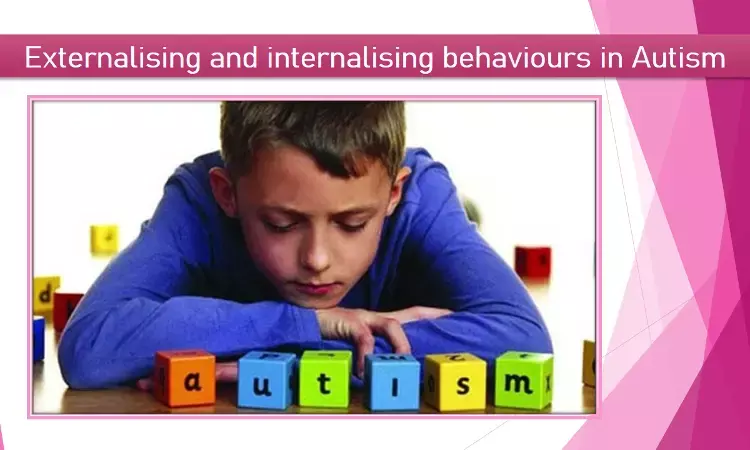- Home
- Medical news & Guidelines
- Anesthesiology
- Cardiology and CTVS
- Critical Care
- Dentistry
- Dermatology
- Diabetes and Endocrinology
- ENT
- Gastroenterology
- Medicine
- Nephrology
- Neurology
- Obstretics-Gynaecology
- Oncology
- Ophthalmology
- Orthopaedics
- Pediatrics-Neonatology
- Psychiatry
- Pulmonology
- Radiology
- Surgery
- Urology
- Laboratory Medicine
- Diet
- Nursing
- Paramedical
- Physiotherapy
- Health news
- Fact Check
- Bone Health Fact Check
- Brain Health Fact Check
- Cancer Related Fact Check
- Child Care Fact Check
- Dental and oral health fact check
- Diabetes and metabolic health fact check
- Diet and Nutrition Fact Check
- Eye and ENT Care Fact Check
- Fitness fact check
- Gut health fact check
- Heart health fact check
- Kidney health fact check
- Medical education fact check
- Men's health fact check
- Respiratory fact check
- Skin and hair care fact check
- Vaccine and Immunization fact check
- Women's health fact check
- AYUSH
- State News
- Andaman and Nicobar Islands
- Andhra Pradesh
- Arunachal Pradesh
- Assam
- Bihar
- Chandigarh
- Chattisgarh
- Dadra and Nagar Haveli
- Daman and Diu
- Delhi
- Goa
- Gujarat
- Haryana
- Himachal Pradesh
- Jammu & Kashmir
- Jharkhand
- Karnataka
- Kerala
- Ladakh
- Lakshadweep
- Madhya Pradesh
- Maharashtra
- Manipur
- Meghalaya
- Mizoram
- Nagaland
- Odisha
- Puducherry
- Punjab
- Rajasthan
- Sikkim
- Tamil Nadu
- Telangana
- Tripura
- Uttar Pradesh
- Uttrakhand
- West Bengal
- Medical Education
- Industry
Internalizing and externalizing behavioural problems linked to autism: BMJ

The behavioral characteristics of children with autism spectrum disorder (ASD) are not only affected by their disease, but also by their parenting environment. High-risk (HR-ASD) has the risk of developing internalization and externalization problems. A study done by Ning Ding et al., published in BMJ Psychiatry, has revealed that children at high risk for ASD exhibited more severe internalizing and externalizing behavioural problems than typically developing (TD) children. The parent negative engagement was associated with behavioural problems.
Autism spectrum disorder (ASD) is a developmental disability marked by early-onset social communication deficits and repetitive sensory-motor behaviours. Emotional and behavioural problems in ASD are frequent, specifically the development of internalizing (e.g., social dysfunction, anxiety, depression, cognitive problems and avoidance symptoms) and externalizing behaviors (e.g., impaired concentration, hyperactivity, aggression and behavioural disorders) has risen to high priority.
The current study had three aims:
(1) To compare the level of child and parent engagement states, parent-child interactions and behavioural problems.
(2) Correlation analysis to determine the association between behavioural problems, child engagement state and parent engagement state.
(3) A hierarchical multiple regression analysis to predict the proportion of variance in the behavioural problems that could correspond to age, parenting stress, parent negative engagement, and parent-child interactions.
A total of 68 matched typically developing (TD) infants, about their internalizing and externalizing behavioural problems and engagement states (i.e. positive, negative, and parent-child interactions), using free play paradigm.
Parent measures were assessed using the Broad Autism Phenotypic Questionnaire (BAPQ) and Parenting Stress Index Short Form (PSI-SF) questionnaire. The core symptoms of ASD were assessed using the the Autism Diagnostic Observational Schedule (ADOS).
It was found that during free play, infants in the HR-ASD group showed more internalizing and externalizing behaviours and less positive engagement than the TD group. In the regression analysis, it was found that parenting stress had an impact on the infants' externalizing behaviours. Parent negative engagement had an impact on the infants' internalizing behaviours.
The results suggested that children's engagement states were influenced by their parents' characteristics.The study revealed that children at high risk for ASD exhibited more severe internalizing and externalizing behavioural problems than TD group. The parent negative engagement is associated with behavioural problems. The findings on the contribution of parents' factors to behavioural problems suggests that the parenting stress and parent-child interactions are important factors for mitigating behavioural problems.
For the HR-ASD group, more parenting stress was associated with child negative engagement and parent negative engagement. Child negative engagement was associated with externalizing problems and parent negative engagement. Positive child engagement was associated with parent-child interactions, externalizing and internalizing behaviours. These results contribute to the growing body of work suggesting that at a very early age in children's development, the level of parent-child interactions shows significant development and already shows links to parent (e.g., parenting stress, parent negative engagement) and individual characteristics and factors.
Source: https://doi.org/10.1186/s12888-021-03479-6
M.B.B.S, M.D. Psychiatry
M.B.B.S, M.D. Psychiatry (Teerthanker Mahavir University, U.P.) Currently working as Senior Resident in Department of Psychiatry, Institute of Human Behaviour and Allied Sciences (IHBAS) Dilshad Garden, New Delhi. Actively involved in various research activities of the department.
Dr Kamal Kant Kohli-MBBS, DTCD- a chest specialist with more than 30 years of practice and a flair for writing clinical articles, Dr Kamal Kant Kohli joined Medical Dialogues as a Chief Editor of Medical News. Besides writing articles, as an editor, he proofreads and verifies all the medical content published on Medical Dialogues including those coming from journals, studies,medical conferences,guidelines etc. Email: drkohli@medicaldialogues.in. Contact no. 011-43720751


